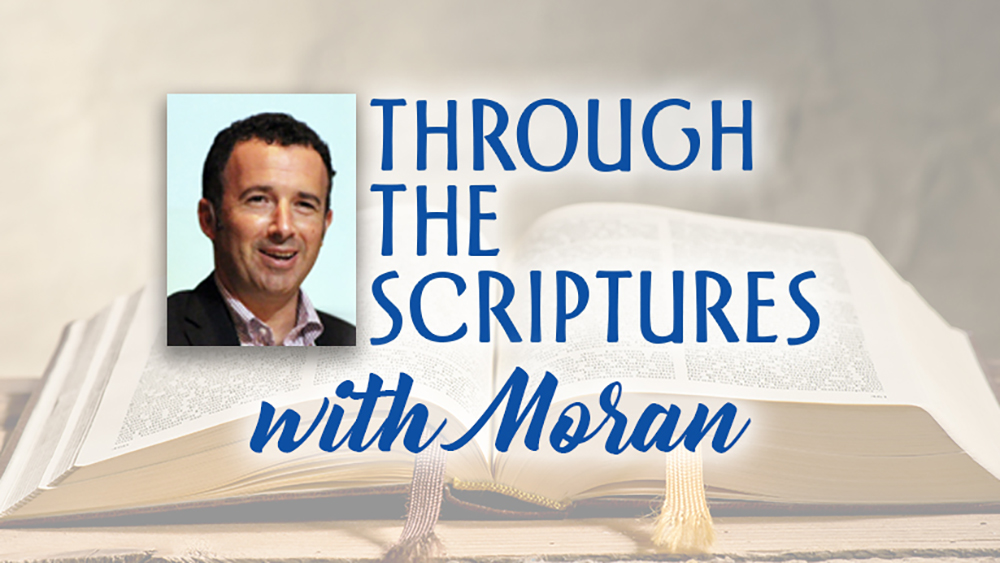
Parashat Vayeizei (And He Went Forth)
Beresheet (Genesis) 28:10–32:3
Haftarah: Hosea 11:7–14:10
Our Parasha this week opens with Jacob's famous dream, where God reaffirms the unconditional covenant that He made Abraham and Isaac, and also with Jacob. When Jacob woke up he said the words:
Surely the LORD is in this place, and I did not know it… How awesome is this place! This is none other than the house of God, and this is the gate of heaven.
Genesis 28:16–17
The personal knowledge of the LORD was important for Jacob to have, especially because he was in a time of incredible distress running away from his brother Esau to an unknown land.
Jacob also made a vow, saying, “If God will be with me and will keep me on this journey that I take, and give me food to eat and garments to wear, and I return to my father’s house in safety, then the Lord will be my God. And this stone, which I have set up as a memorial stone, will be God’s house, and of everything that You give me I will assuredly give a tenth to You.”
Genesis 28:20–22
Indeed, we can see how the LORD and His grace were with Jacob throughout his journey in Paddan-Aram. We see it in how Jacob meets Rachel in a way that was predestined by God to happen. We see it in the way that Jacob had the sudden strength to roll the stone from the mouth of the cave in order to water Laban’s flock, which was something that usually required a few men (Genesis 29:9–10). We see it in the way that seven years of work in order to marry Rachel were just like a few days in Jacob's eyes because of his love for her (Genesis 29:20). And we see it in the fact that, although deceived by Laban, Jacob did not give up, but had the will to work another seven years in order to marry Rachel (Genesis 29:28–29).
God's grace was also clearly guiding Jacob in the days after his time at Paddan-Aram. Although arriving to Laban's house with nothing, Jacob left with wives, children, camels, livestock, and other possessions that he acquired while there (Genesis 31:17–18). And finally, we see God's grace in how He protected Jacob by warning Laban not to do anything to Jacob as we read in Genesis 31:24:
However, God came to Laban the Aramean in a dream of the night and said to him, “Be careful that you do not speak to Jacob either good or bad.”
Throughout Jacob’s journey, God was with him and gave him grace to face the hardships, danger, and deception.
In our Haftarah, the prophet Hosea recounts the ways the people of Israel turned their backs on God, but how He answered them in grace:
"How can I give you up, Ephraim? How can I surrender you, Israel? How can I make you like Admah? How can I set you as Zeboim? My heart is turning over within Me. My compassions are kindled. I will not vent My fierce anger. I will not again destroy Ephraim. For I am God — not a man — the Holy One in the midst of you, and I will not come in fury."
Hosea 11:8–9
It is interesting that further on, Hosea specifically mentions the difficult time that Jacob faced in working an additional seven years to marry Rachel:
Now Jacob fled to the land of Aram, and Israel worked for a wife, and for a wife he kept sheep.
Hosea 12:12 (12:13 in the Hebrew Bible)
While it may seem out of place, this verse appears in a section of Scripture where God is both rebuking Ephraim and Judah for their deception against Him, but also extending His grace to them. Just as in the life of Jacob, where God's grace is greater than man's deception, so it is for the people of Israel.
Jacob deceived and was deceived. Yet, God’s endless grace not only covered Jacob's sin, but also gave him what he needed to endure the difficulties.
The God who extended grace to Jacob is the same God who extends grace to us every day of our lives. This mysterious grace is more than we can understand, but it is always there to give us strength for whatever challenge we may face.
Shabbat Shalom,
Moran
Check out previous blogs on this parashah!
Share this Post

One Comment on “Mysterious Grace”
A good word, Moran! Psalm 24 further opens up this grace story, revealing a promise of great blessing to those who could enter God’s presence. But the qualifications to enter His presence are cited, requiring no deceptions, and Jacob, whose very name is “supplanter” (deceiver) would appear to be disqualified by his very obvious “sin DNA”. His Adamic propensity. Big question: why would our God anoint the psalmist to cite this particular patriarch? Answer: to make the profound prophetic point that Jacob’s choice to relentlessly and passionately pursue His God, rather than wallow in his own biggest weakness, over-ruled his human flaws. Jacob chasing God positioned him to the front of the line, to the high position of becoming a living gate, whose lifted head would forever be an entry point for the King of glory. Selah (aka: ponder that).